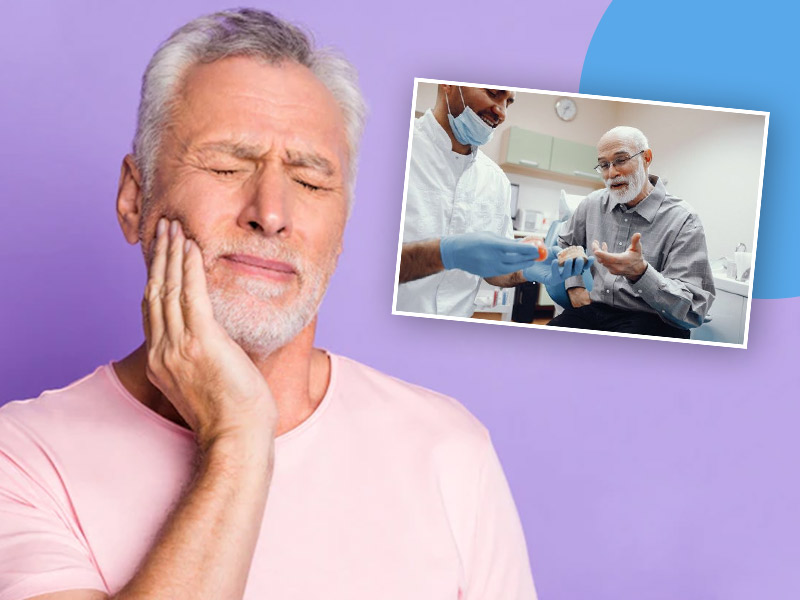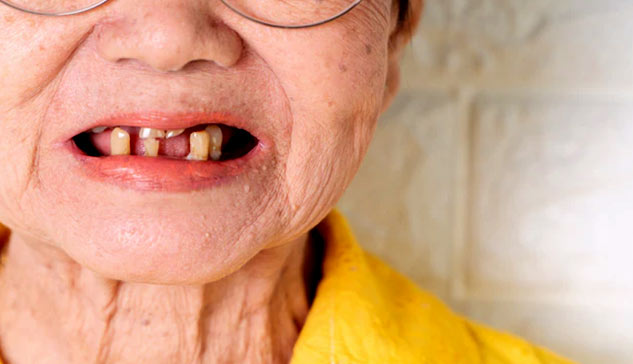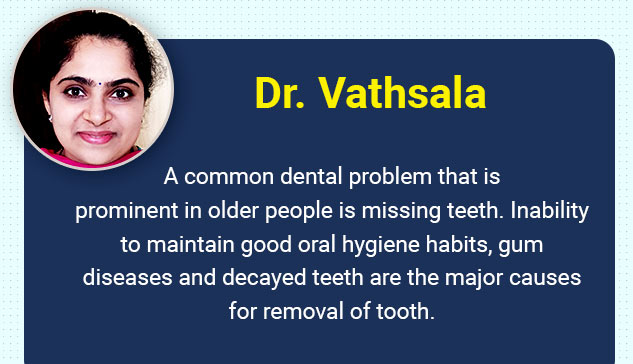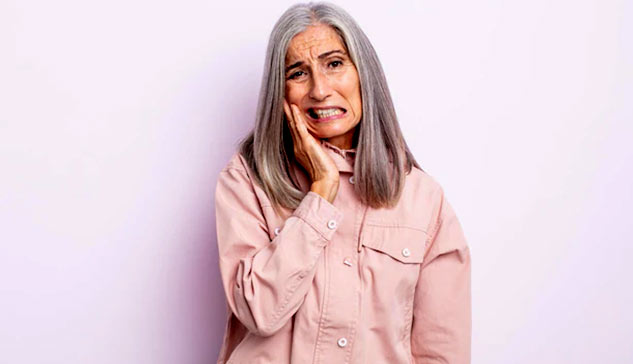Dental Care Tips for People Over 60
Ageing is a natural process that causes various changes in the body, and oral cavity is no exception. It is vital to understand that there exists a strong link between oral health and general health. Physiological ageing is often associated with chronic diseases such as cardiovascular diseases, hypertension, diabetes mellitus, loss of autonomy and dependency for daily activities.
Even the oral cavity being an important component of active ageing can face teeth issues with or without the presence of any underlying medical problems. Some of the common dental problems frequently seen in older people are wear and tear of teeth, missing teeth, gum diseases, loosening of teeth, and dental caries (decay). Read on as Dr. Vathsala, Reader, Department of Oral Medicine and Radiology, Manipal College of Dental Sciences, Manipal Academy of Higher Education, Manipal shares dental care tips for seniors in this article.
Dental health after 60

Wear and tear, chipping, and cracking of teeth occur with ageing. It can be further increased with improper oral hygiene measures like brushing with improper technique and use of hard bristle brushes.
- This makes teeth lose their normal colour and appearance and more susceptible to tooth fracture.
- Patients can complain of sensitivity to some kind of food.
- This further leads to more dental caries and loss of teeth.
- To avoid this one must use a medium to soft bristle tooth brush and adapt proper brushing technique.
- Toothbrushes have to be changed once in three months or whenever they get out of shape.
Missing Teeth In Old People
Another common dental problem that is prominent in older people is missing teeth.

- Inability to maintain good oral hygiene habits, gum diseases and decayed teeth are the major causes for removal of tooth.
- An important risk factors include tobacco use.
- Absence of teeth has a major impact on quality of life. It reduces chewing efficiency, and affects the food choice with refusal for fibrous food.
- It can lead to unwanted gaps between teeth leading to food impaction.
- Loss of teeth also causes hindrance in communication.
How To Treat Missing Teeth?
There are numerous options available for replacement of missing teeth. From removable dentures to fixed dentures and implants. The decision on the type of replacement depends on factors like the location of the missing tooth, bone support, overall health, the condition of the remaining teeth, and the patient’s affordability. Denture wearers must keep these few things in mind:
- Dentures must properly fit in the mouth.
- Removal of the dentures at night followed by cleaning and massaging of the tongue, gums and all surfaces of the mouth is essential.
- Dentures should be cleaned daily with denture care products.
- Any burning sensation, ulcers, or redness below the dentures must alert the person to seek immediate dentist’s opinion.

Gum Diseases in older adults
Gum health is essential for the stability of the teeth, but most people fail to pay attention to this aspect. Older people often present with loosening of gums and loose teeth.
- Initial symptoms of gum disease are swollen and red gums and bleeding while brushing.
- Poor oral hygiene, lack of routine dental check-ups, smoking or chewing tobacco, and systemic diseases like diabetes can further aggravate gum diseases.
- Gum diseases are easily preventable if one maintains good oral hygiene and keeps the teeth surfaces clean.
- Dental scaling procedures can be done to remove any plaque that is already formed on the.
- In more severe gum disease, deep scaling and surgical procedures may be required.
- Therefore, regular dental visits are necessary to help identify these conditions at an early stage.
Dental Caries
Decayed tooth or dental caries is the most common dental problem seen in all age groups. Caries in root surface is more common in older people due to loosened gums or exposed roots.
- Best ways to prevent tooth decay is by maintaining good oral hygiene, eat healthy nutritious food, and avoid sticky food with high sugar content.
- Regular dental visit helps to identify the problem at an early stage, and timely filling of the cavity facilitates the longevity of the tooth.
- People with severe tooth pain may have infected pulp which requires root canal treatment thus preventing the need for tooth removal.
- However, if a dentist judges a teeth a decayed tooth as useless, tooth removal may be the only option.
Other problems
Other than the mentioned dental problems, older people might also be suffering from systemic diseases, neuropathic problems and will be on multiple medications. Patients on multiple medications often complain of dryness of the mouth and food lodgement.

- Such patients can be advised with oral rinses containing artificial saliva supplements, to drink frequent sips of water to keep the oral cavity moist and avoid irritants like spicy food, alcohol, smoking, and caffeine.
- Nutritional deficiency like anemia is another commonly noted condition in this age group.
- Burning sensation and angular cheilitis (pain in the corner of the mouth) can be presented by these patients.
Nutritional supplements with timely medical consultation must be advocated. Older individuals often have reduced manual dexterity, cognitive inability to perform daily activities, and a lower tactile threshold. This can pose a challenge in meticulous oral hygiene maintenance. Tooth brushes with specially adapted handles, proxa brushes, finger tooth brushes, electric tooth brushes, brush with flexi grip handles, foam over tooth brush handles can be suggested for better grip and easy use.
Dental Care Tips for People Over 60
Here are a few tips for maintaining healthy mouth during old age:
Good oral hygiene is the key. Brushing two times a day with fluoride-containing tooth paste, and soft bristled brushes. Brush has to be changed once it gets out of shape.
- Regular dental check-ups twice a year
- Once in a day flossing to remove debris in between the teeth. Floss with handles can be opted
- Eating nutritious food, rich in fibre and avoiding sticky, sugary items.
- Swish your mouth thoroughly after every meal
Dental care after you hit 60 must not be restricted to emergency care. Instead, the oral health goal should be to keep the teeth healthy and pretty. A healthy smile looks great at every age!
Image credits- freepik
https://www.youtube.com/watch?v=Ti7W41b8Uhw/
325 Corona Cases In Delhi In The Last 24 Hours Rate Of Infection Was 2.39 Percent





